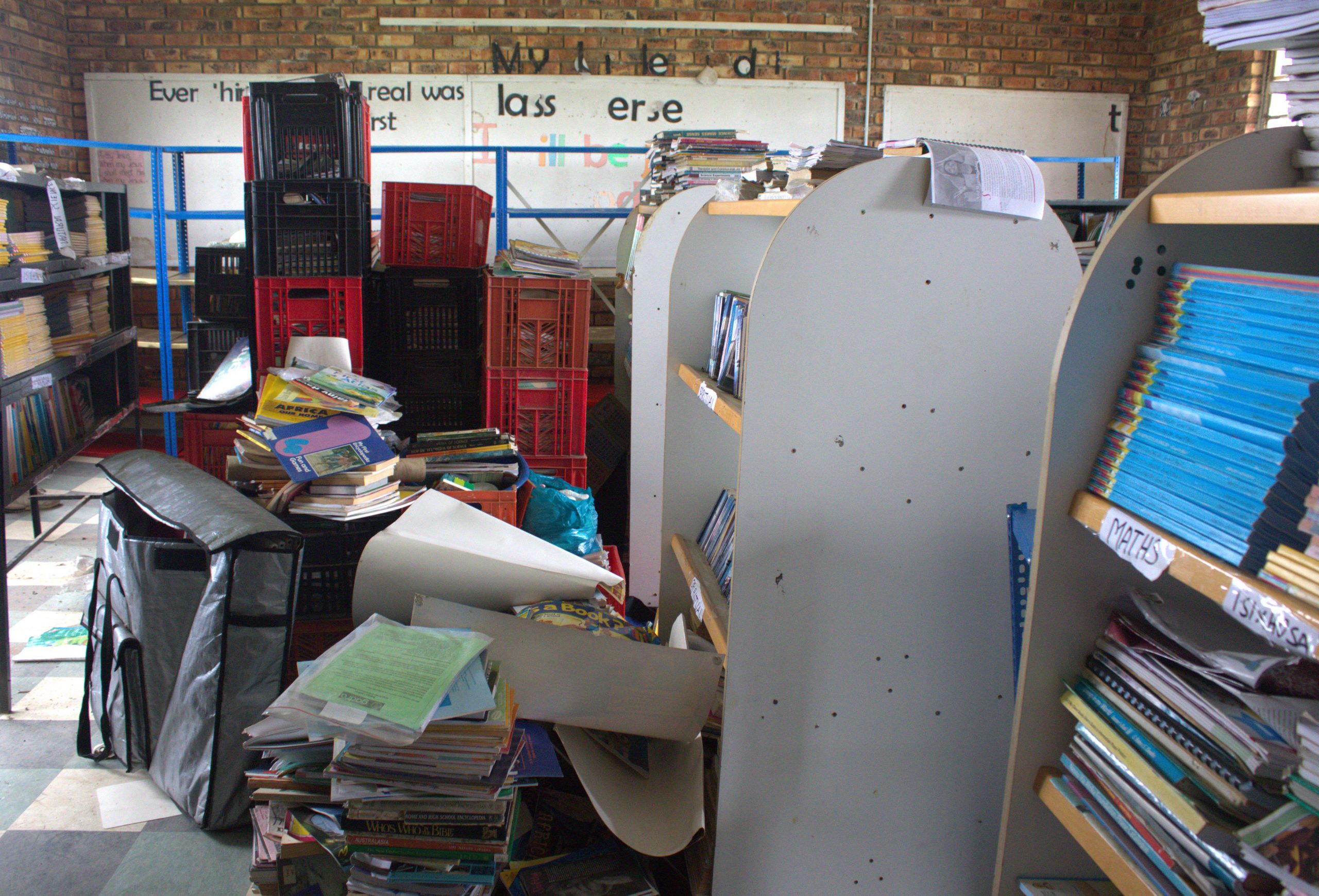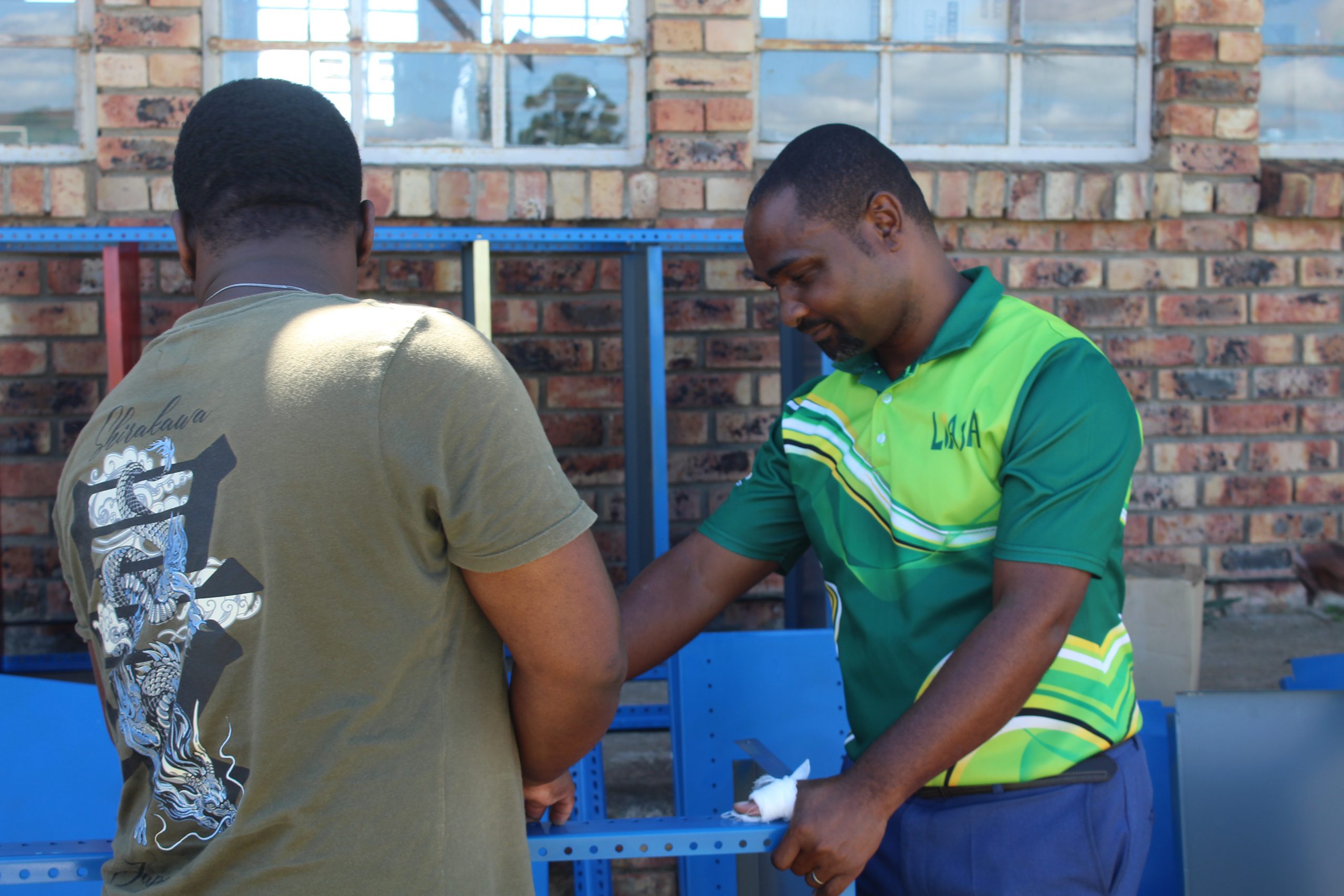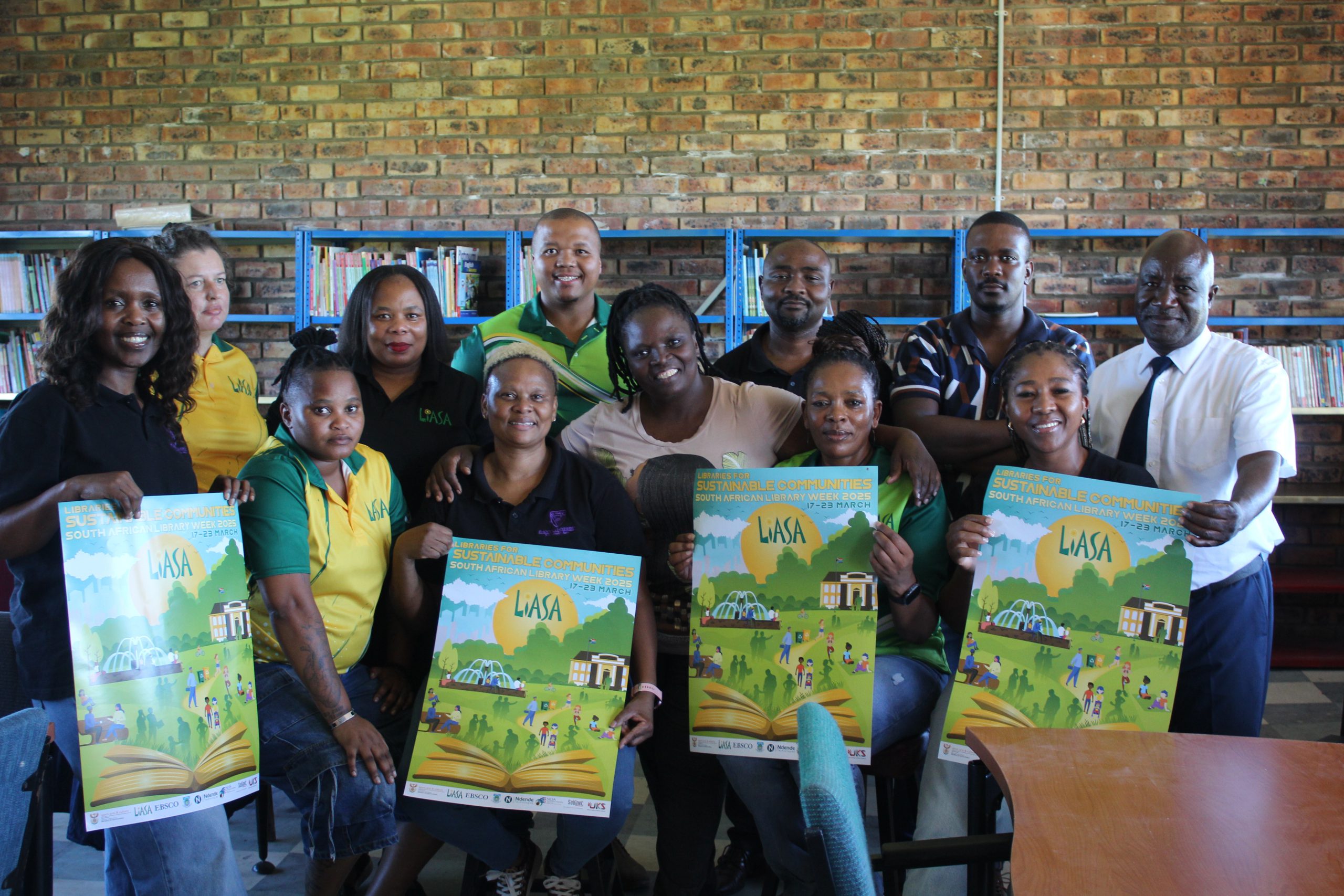By Maleruo Leponesa
This Library Week (17-21 March), a group of dedicated Rhodes University librarians marked another milestone in their quest to develop primary school libraries by installing new shelving at the Grahamstown Seventh Day Adventist School (SDA).
Last year, the Rhodes Library’s Siyafunda eMakhanda team delivered books, shelves, cushions and carpets to Grade 1 classrooms in four schools: Samuel Ntlebi, CM Vellum, Makana Primary and SDA.
The team built reading corners with diverse children’s books and comfortable cushions decorated with’ funda’ and ‘read’. The classroom libraries were sponsored by the SALI Trust and were designed to create an inviting, engaging space for group reading, individual reading and extended reading – all essential parts of the whole language experience that support reading for meaning.
However, according to Sizwe Mabena, Rhodes University’s Principal Librarian for Learning Support and Community Engagement, when the team visited the beneficiary schools last year, it was alarming to see the state of the schools’ main libraries.
At SDA, the books were stored in crates, making the library challenging to navigate and unsafe for young learners. The disorganised space posed potential hazards, with books scattered in ways that made them hard to access and challenging to retrieve. In fact, the setup was so impractical that children risked tripping and having books fall on them.

The team recognised the need to not only continue the classroom reading corners project but to transform the dysfunctional school libraries into welcoming and effective spaces for learning.
Determined to help, the technical services team visited SDA this year to measure and assess the space. They decided to repurpose materials from the Rhodes University library, including old, disused shelving.
The shelves were adjusted and painted to suit the needs of the school’s library, which had lower window levels. With careful planning and repurposing, the team turned these materials into new shelves that could safely and effectively store the school’s books.
This month, Mabena’s team returned to SDA with his team to install shelving for their main library. Once the shelves were installed, they went to the school to reshelve and reorganise the books. Their efforts transformed the library into a space that students and teachers could use easily and pridefully.

Rhodes University Vice-Chancellor Sizwe Mabizela has heartily endorsed the initiative.
“When we work as part of the community, we are working with the school to make sure that we leave a place where our learners will be proud, a place where our learners will be motivated to study, and a place where our teachers will feel safe and encouraged to use the library,” he said.
SDA principal Farasten Mashozhera said the school was overwhelmed by the team’s efforts.
He said that at first, the school was sceptical about the promise that the university had made and “could not believe their eyes” when the library technical staff arrived and got busy sorting the books and building the shelves.
Mashozhera said the school had already included a reading period in the timetable to ensure every learner benefited from the library.
In the future, the library will be helpful to the broader school community. “As this is a church school, the community can find spiritual books in the library,” he said. The library was shown off to impressed parents on 19 March.
While the project is already having an impact at Grahamstown Seventh Adventist School, the work won’t stop there. The university has already received requests from other schools needing similar support. While there may not be a budget for further expansions, the team is committed to using available resources to continue helping where possible.
Rhodes University Humanities librarian Lucky Xaba, a dedicated and passionate Siyafunda eMakhanda team leader, said they would continue their efforts to assist more primary schools in creating functional libraries.
In addition to the libraries, the team has also been working on upgrading resource centres for teachers, ensuring that educators have access to the materials they need. However, the project still faces one major challenge: a shortage of books. To address this, the team plans to launch a “donate a book” initiative, encouraging members of the community to contribute any books they can spare.
If this initiative inspires you and you want to make a difference, consider donating a book to help support the continued development of these libraries. Xaba said these contributions could have a meaningful impact on the lives of young learners and teachers in the community.
You can reach her at: l.xaba@ru.ac.za


